This article has been reviewed according to Science X's editorial process and policies. Editors have highlighted the following attributes while ensuring the content's credibility:
fact-checked
reputable news agency
proofread
India is likely undercounting heat deaths, affecting its response to increasingly harsh heat waves
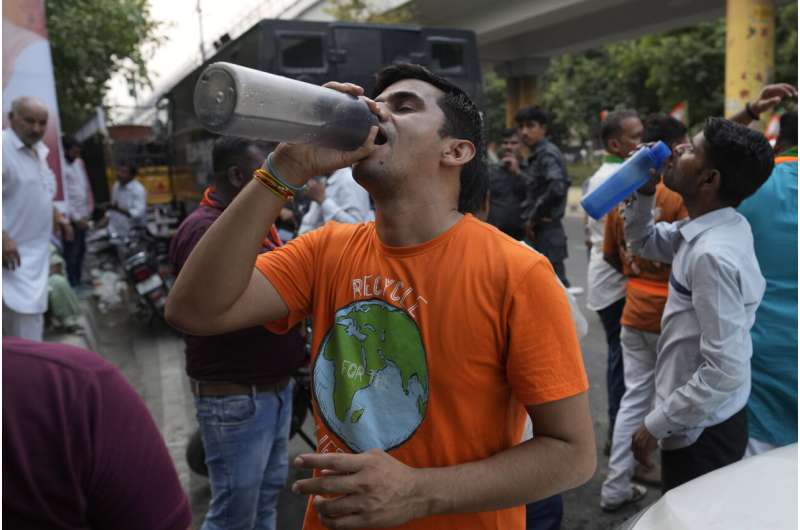
Months of scorching temperatures sometimes over 50 degrees Celsius (122 Fahrenheit) in parts of India this year—its worst heat wave in over a decade—left hundreds dead or ill. But the official number of deaths listed in government reports barely scratches the surface of the true toll and that's affecting future preparations for similar swelters, according to public health experts.
India now has a bit of respite from the intense heat, and a different set of extreme weather problems as monsoon rain lashes the northeast, but for months the extreme heat took a toll on large swaths of the country, particularly in northern India, where government officials reported at least 110 heat-related deaths.
Public health experts say the true number of heat-related deaths is likely in the thousands but because heat is often not listed as a reason on a death certificate many heat deaths don't get counted in official figures. The worry, they say, is that undercounting the deaths means the heat wave problem isn't as prioritized as it should be, and officials are missing out on ways to prepare their residents for the scorching temperatures.
All of India's warmest years on record have been in the last decade. Studies by public health experts found that up to 1,116 people have died every year between 2008 and 2019 due to heat.
Difficulties registering heat deaths
As part of his work in public health, Srinath Reddy, the founder of the Public Health Foundation of India, has advised state governments on how to factor in heat when recording deaths.
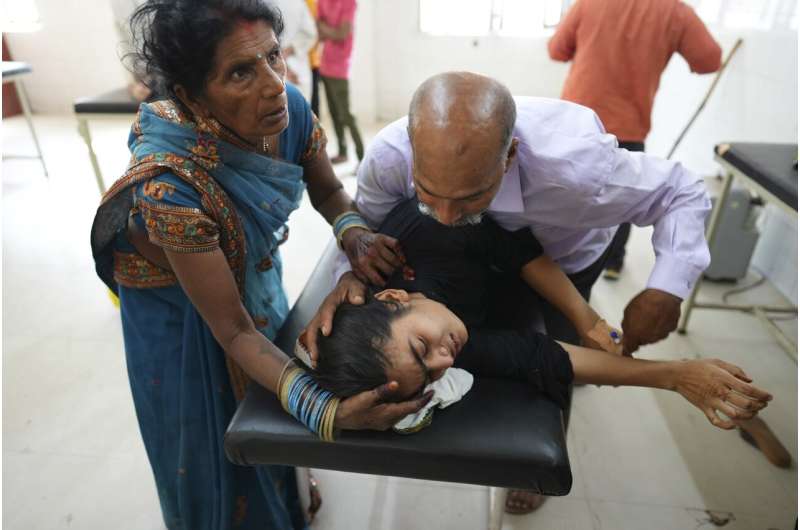
He found that as a result of "incomplete reporting, delayed reporting and misclassification of deaths," heat-related deaths are significantly undercounted around the country. Despite national guidelines for recording deaths, many doctors—especially those in overcrowded public hospitals where resources are already strained—don't follow it, he said.
"Most doctors just record the immediate cause of death and attribution to environmental triggers like heat are not recorded," Reddy said. That's because heat deaths can be classified as exertional or non-exertional: Exertional is when a person dies due to direct exposure to high temperatures and non-exertional is when young children, older people or people with pre-existing health conditions become seriously ill or sometimes die from the heat, even if indoors.
"The heat wave is the final straw for the second category of people," said Dileep Mavalankar, former head of the Indian Institute of Public Health in Gandhinagar. "Most people dying during heat waves belong to this category but their deaths are not recorded as connected to the heat."
Mavalankar agreed the official number of heat deaths this year is an undercount. He said there were 40,000 recorded case of heat stroke, but only 110 deaths. "This is just 0.3% of the total number of heatstroke cases recorded, but usually heat deaths should be 20 to 30% of heatstroke cases," he said.
"We need to be counting deaths better," Mavalankar said. "That is the only way we will know how severe the consequences of extreme heat are."
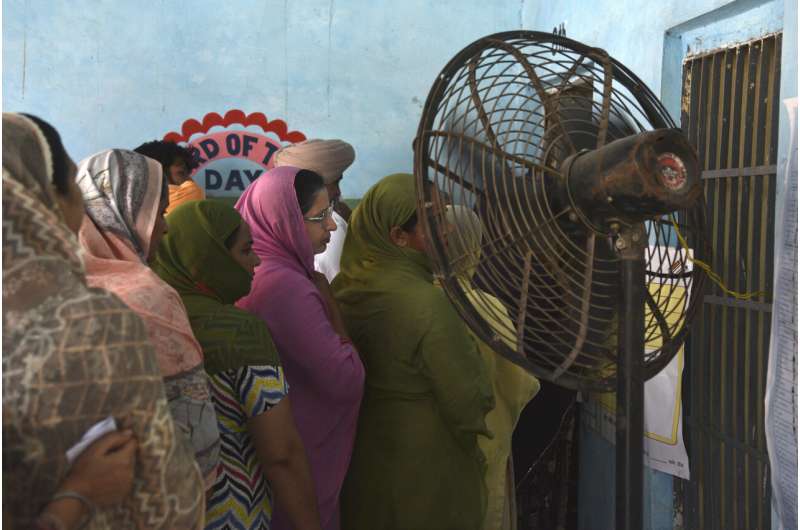
Planning for future heat
In his former role at the Indian Institute of Public Health in Gandhinagar, Gujarat, Mavalankar was instrumental in developing India's first-ever heat action plan for the city of Ahmedabad in 2013, three years after more than 1,300 people died there during a heat wave.
The heat plan included measures like increasing access to shaded areas for outdoor workers, converting relatively cool public buildings to temporary shelters for people without homes or access to electricity and ensuring hospitals have adequate medical supplies and staff during heat waves.
In the years that followed, Mavalankar and his team studied the impact of the heat plan by counting death tolls in subsequent hot summers. Because of a lack of data on heat deaths specifically, the team looked at deaths from all causes, which spikes during heat waves, and used the number of excess deaths to determine how many deaths were likely caused by heat.
They estimate that the heat action plan had helped reduce the number of fatalities during heat waves by up to 40%.
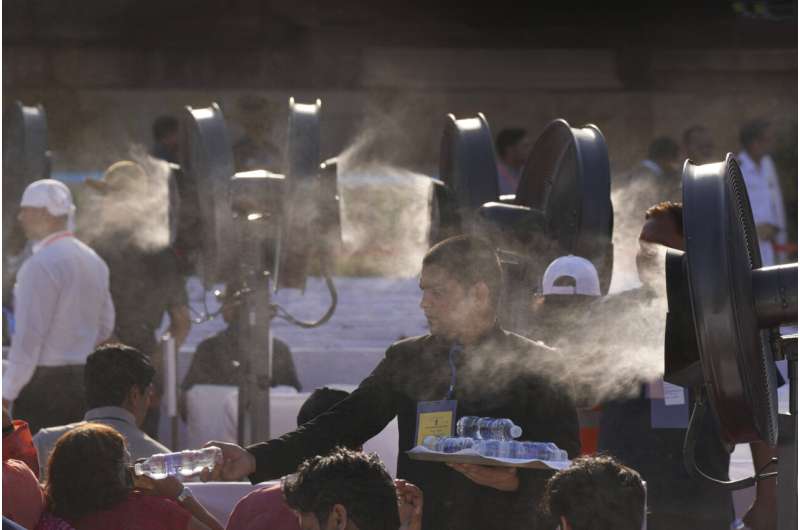
Having that data, while imperfect, Mavalankar said, allowed the city to adequately prepare itself for extreme heat, and do more of what worked in the future.
But he said the lack of data elsewhere makes it difficult to replicate the results in Ahmedabad on a national level.
"Not reporting these deaths, sharing data, is like the Indian Meteorological Department not sharing weather data," he said. "We can easily do this across the country but we've not decided that we should do it."
Improving government data
The Indian government collects data on heat-related deaths through the health ministry's National Centre for Disease Control which is then shared with the National Disaster Management Agency. The agency then shares the data as a total nationwide figure for the year, but a state by state breakdown is not publicly available.
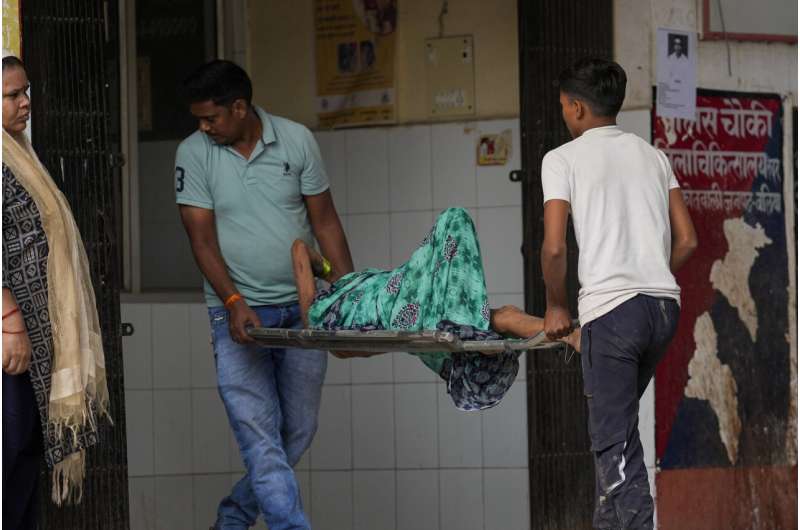
The National Crime Records Bureau also collects heat-related death data as part of their accounting of deaths due to "forces of nature" and publishes those figures.
But there are huge discrepancies. In 2020, the last year with publicly available data on heat deaths from both official sources, the crime records bureau recorded 530 deaths from heatstroke, but the disaster agency reported just four heat-related deaths.
The Associated Press contacted India's health ministry spokesperson, the NCDC and the NDMA to comment on the discrepancy but did not receive a response.
Getting better data can answer a whole host of questions about who is most vulnerable and how best to help them, said Bharghav Krishna, a public health expert and a fellow at the Sustainable Futures Collaborative thinktank, "especially with respect to identifying who is dying, where they're dying, what are they doing when they're dying."
Krishna thinks that the data currently collected, while inadequate, can at least provide some insight for policymakers and researchers and force at least some action if its shared with the right people.
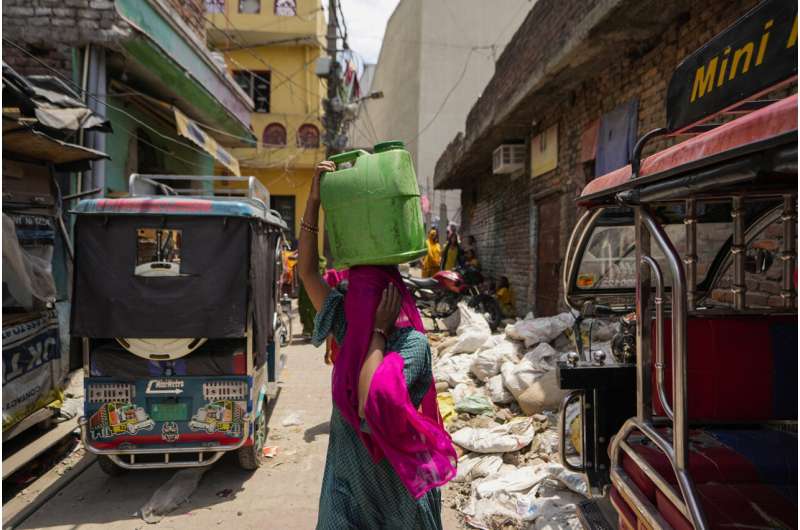
But Malavankar said the issues of data collection are more systemic, and that needs to be urgently addressed.
"We have not done a national census since 2011, not having numbers is our national weakness," he said.
© 2024 The Associated Press. All rights reserved. This material may not be published, broadcast, rewritten or redistributed without permission.



















